Is sea water good for your hair? Everything you need to know
If you've ever swum in the ocean, then you realize how dry your hair gets after swimming. This is just one of the seawater’s effects on hair but is it actually any good for your hair?
In this blog post, we will share with you what sea water is, the benefits and disadvantages of sea water, and what you can do to protect your hair from sea water.
Let’s get started.

What is Sea Water?
As the name implies, sea water is salt water from the ocean. The ocean is full of all kinds of life and activity, which can be seen when we study what types of sea water there are.
Sea salt water is typically good for your hair because it can improve your hair's natural wave and bounce due to the increased sodium in sea saltwater compared to tap water.
But salt water is not without its downsides. For example, it can make your hair rough and dry and make your scalp itchy and irritated.
The disadvantages of swimming in salt water on your hair outweigh the benefits. However, if you want to go to the beach or use sea water as a treatment, we’ll teach you how to do it safely below.

The benefits of using sea water on your hair
- Sea water is known for its mineral content, and is rich in vitamin B5, protein, iodine, and magnesium.
- Salt water crystals in seawater will add extra body and fullness to your hair.
- Sea water has a pH level of 8.1, making it the perfect solution to use as a natural conditioner for your hair.
- Sea water has an abundance of minerals like zinc, potassium, sulfur, copper, and calcium, which are essential nutrients for the health of your hair.
- Since salt water has antifungal properties, it can help with dandruff caused by fungus.
- Sea water can act as a natural shampoo for greasy scalps removing heavy oils and extra sebum.
The disadvantages of using sea water on your hair
- The disadvantages of using sea water on your hair include being rough and dry, the salt in the water can be too harsh for your hair.
- Sea water also tends to weigh down the hair and make it look greasy and poofy.
- Sea water dries out the scalp and can leave it feeling itchy or irritated.
- If you have dyed or bleached your hair, sea water can worsen its condition by causing extreme dryness.
What to do before and after swimming in the ocean
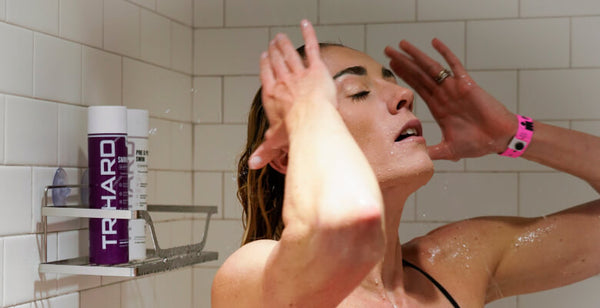
The best way to protect your hair from sea salts is to create a protective layer around your hair with a specialized conditioner. When shopping for the best natural conditioner, you may notice that some ingredients make it stand out.
For instance, you might want to look for an all-natural conditioner with ingredients like sea water or shea butter. A swim conditioner that stands out in this category is Trihard’s Pre & Post Swim Conditioner.
Swimmers can use our swim conditioner before swimming to provide an additional protective layer enriched with Red Algae, Dead Sea Minerals, and Botanical Extracts. This technology effectively neutralizes the absorption of pool and ocean chemicals to prevent any potential negative side effects.
Ocean water can cause irreversible damage to your hair, so you should wash it after swimming in the sea as soon as possible to avoid the buildup of sodium-chlorine (salt) on it.
A great way of removing sea salts from your hair is to use a swim shampoo like Trihard’s. Our swim shampoo is formulated with Red Algae, Dead Sea Minerals, and Botanical Extracts.
Additionally, our shampoo is formulated with Argan and Shea Oils to hydrate dry hair after-swim and relieve potential itchy scalps caused by pool and ocean chemicals by utilizing Sea Buckthorn, Aloe Vera, and Menthol (Peppermint Extract).
Summary
Sea salt water is typically good for your hair because it can improve your hair's natural wave and bounce due to the increased sodium in sea saltwater compared to tap water.
But salt water is not without its downsides. For example, it can make your hair rough and dry and make your scalp itchy and irritated.
The disadvantages of using sea water on your hair outweigh the benefits. However, if you want to go to the beach or use sea water as a treatment, here’s how to do it.
Use a specialized swim conditioner before swimming to provide an additional protective layer enriched with Red Algae, Dead Sea Minerals, and Botanical Extracts. This technology effectively neutralizes the absorption of the pool and ocean chemicals to prevent any potential negative side effects.
After you finish swimming, wash your hair to avoid the buildup of sodium-chlorine (salt). A great way of removing sea salts from your hair is to use a swim shampoo like Trihard’s.
Our swim shampoo is formulated with Argan and Shea Oils to hydrate dry hair after-swim and relieve potential itchy scalps caused by pool and ocean chemicals by utilizing Sea Buckthorn, Aloe Vera, and Menthol (Peppermint Extract).

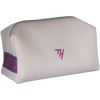
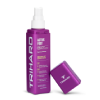


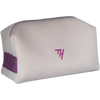
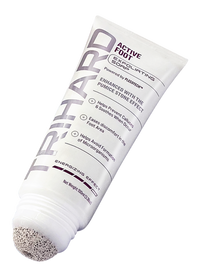



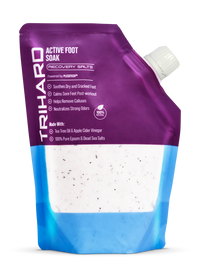






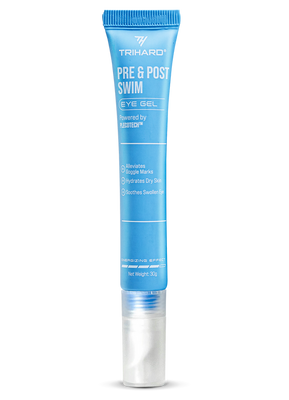





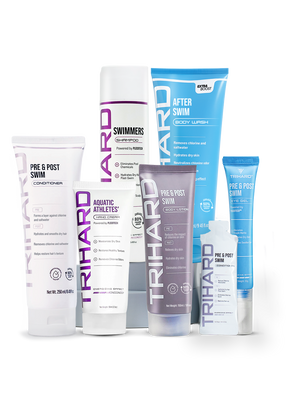







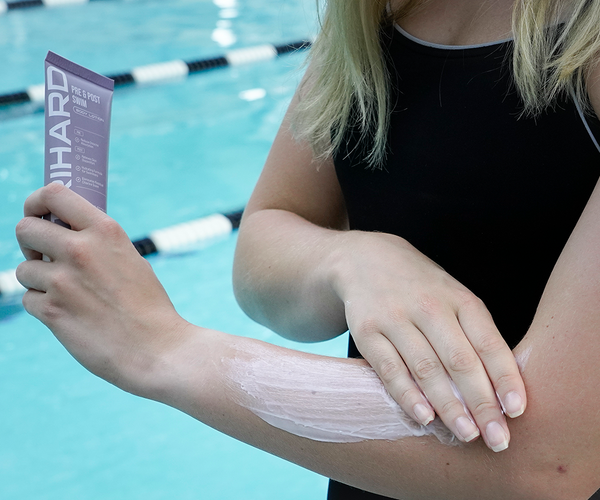


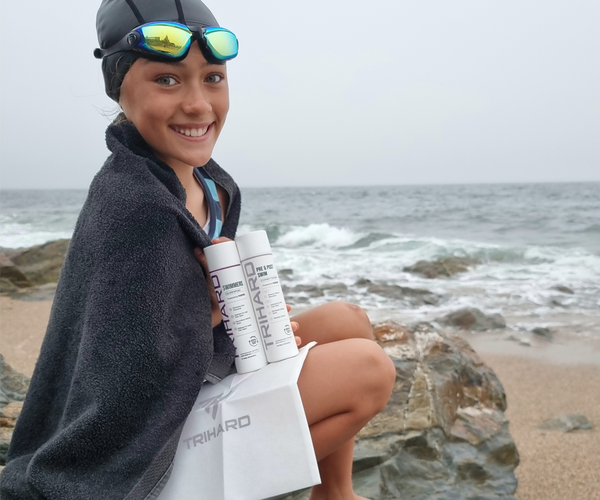
Lascia un commento